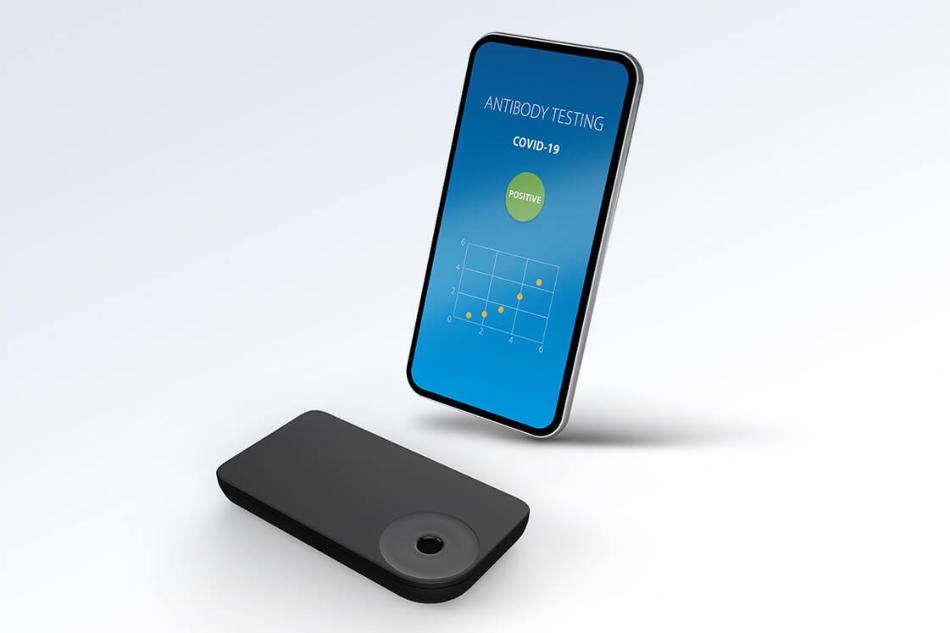Sensing technologies have been wide adopted for applications that aim to prevent the spread of COVID-19. Several solutions used LiDAR sensors to keep social distance between people or to control people flow based on object detecting. Spectral sensing, on the other hand, can be applied for medical testing for COVID-19 virus. Austrian sensor expert AMS recently announced its collaboration with two German medical companies for such applications.
AMS said that it is providing its AS7341L spectral sensor to midge medical, a German medical technology startup from Berlin, to develop a disruptive technology for science-backed rapid genetic and blood testing in a home and professional healthcare environment at a lower cost. midge medical’s current focus is on developing a pocket-sized COVID-19 (SARS-CoV-2) genetic test. Test results can be read-out using a smartphone in as little as 15 minutes.
The spectral sensor of AMS will be deployed to form a sensor system that allows spectrally resolved read out of amplified COVID-19 (SARS-CoV-2) virus particles.
In June, AMS also reported a partnership with Senova, a manufacturer of in vitro diagnostic medical devices based in Germany. The two parties have successfully concluded tests using a combination of Senova technology and AMS spectral sensor technology to improve performance and usability of a lateral flow-based test to detect antibodies related to the COVID-19 (SARS-CoV-2) virus.

(Image: AMS)
Based on this, AMS and Senova are entering into a partnership to combine the read-out technology of AMS with the lateral flow-test capabilities of Senova. The two companies have agreed on realizing a disposable electronic lateral flow test towards testing for immunity against the COVID-19 (SARS-CoV-2) virus based on antibody detection.
Recent experiments further proved feasibility of quantitative detection of serum proteins (such as C-reactive protein (CRP) down to concentrations as low as tens of pg/ml (picograms/ml). This is more than a factor of 10 more sensitive than the detection achieved with most of the standard rapid test read-out devices. In combination with COVID-19 (SARS-CoV-2) antigen assays, this provides the platform for COVID-19 (SARS-CoV-2) virus detection in saliva and nasal swab samples in the early stage of COVID-19 (SARS-CoV-2), to be developed in a second step.
To reach manufacturing scale in an accelerated timeframe, AMS will partner with Jabil Healthcare to integrate its sensor technology into a high-volume turnkey module, featuring a Bluetooth connection.












